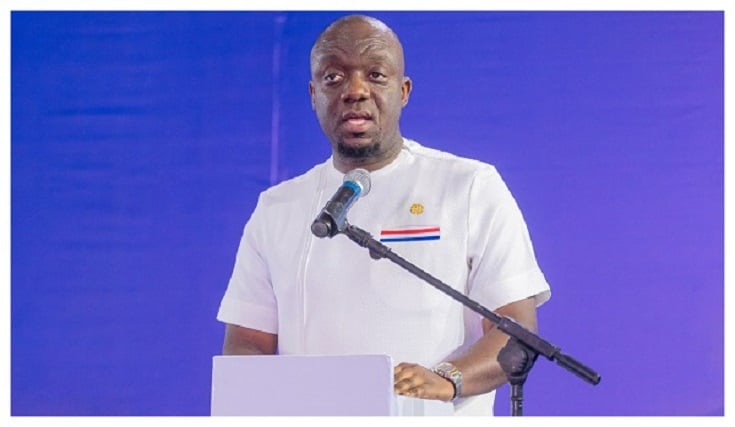The New Patriotic Party (NPP) in Ghana, under the leadership of General Secretary Justin Kodua Frimpong, has initiated a reconciliation process aimed at unifying the party and bolstering its strength ahead of future elections. This initiative involves granting amnesty to suspended members, signaling a willingness to mend internal divisions and consolidate support. The party’s leadership emphasizes the importance of unity and recognizes that internal conflicts can weaken its political standing. This amnesty, however, does not extend to members who voluntarily resigned from the party, indicating a nuanced approach to reconciliation that distinguishes between those who were disciplined by the party and those who chose to leave of their own accord. The party’s strategy appears to prioritize reintegrating members who were subject to internal disciplinary measures while maintaining a more cautious approach towards those who actively disassociated themselves from the NPP.
This selective amnesty demonstrates a strategic effort to strengthen party ranks by welcoming back those who were previously deemed to have violated party rules or norms. By offering a pathway back into the fold, the NPP leadership aims to bridge internal divides and project an image of unity and cohesion. This move is likely intended to bolster the party’s electoral prospects by maximizing its support base and minimizing internal dissent. It also signals a willingness to forgive past grievances and focus on shared political goals. The distinction between suspended and resigned members suggests a careful evaluation of the circumstances surrounding each departure, aiming to differentiate between those who may have had temporary disagreements with the party and those who made a conscious decision to sever ties.
The NPP’s willingness to consider the reinstatement of resigned members, albeit under specific conditions, further underscores its commitment to expanding its support base. These individuals, if they wish to rejoin, are required to formally express their intention in writing, allowing the party to assess their commitment and the potential impact of their return. This requirement serves as a vetting process, ensuring that those who rejoin are genuinely committed to the party’s principles and objectives. This careful approach indicates an effort to avoid potential disruptions or renewed internal conflicts that could arise from the reinstatement of individuals who may still harbor dissenting views or have conflicting loyalties.
This reconciliation drive, spearheaded by General Secretary Frimpong, highlights the NPP’s focus on internal cohesion as a crucial element of its overall political strategy. By addressing internal divisions and consolidating its support, the party aims to present a united front and enhance its competitiveness in future elections. The emphasis on unity also serves to project an image of stability and strength, which can be particularly appealing to voters in a competitive political landscape. The party’s leadership is likely betting that a more unified and inclusive NPP will be better positioned to attract and retain voters and effectively challenge its political rivals.
The distinction between suspended and resigned members reflects a pragmatic approach to reconciliation, balancing the desire for inclusivity with the need to maintain party discipline and cohesion. While the amnesty offers a path back for suspended members, the requirement for resigned members to formally request reinstatement provides a mechanism for the party to evaluate their sincerity and assess potential risks. This selective approach allows the NPP to extend an olive branch while simultaneously safeguarding against potential internal disruptions.
The overall message conveyed by the NPP leadership is one of unity, reconciliation, and a focus on strengthening the party’s foundations. By offering amnesty to suspended members and providing a pathway for resigned members to rejoin, the NPP seeks to maximize its support base and project an image of strength and stability. This initiative is a strategic move aimed at enhancing the party’s electoral competitiveness and reinforcing its position as a major force in Ghanaian politics. The focus on internal unity underscores the party’s recognition that a cohesive and disciplined organization is essential for achieving its political objectives.


